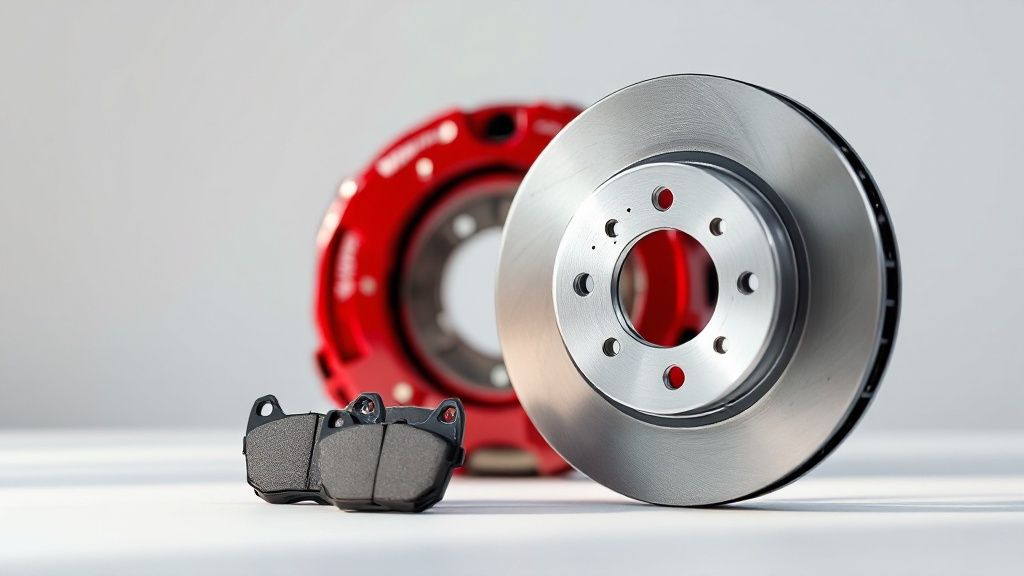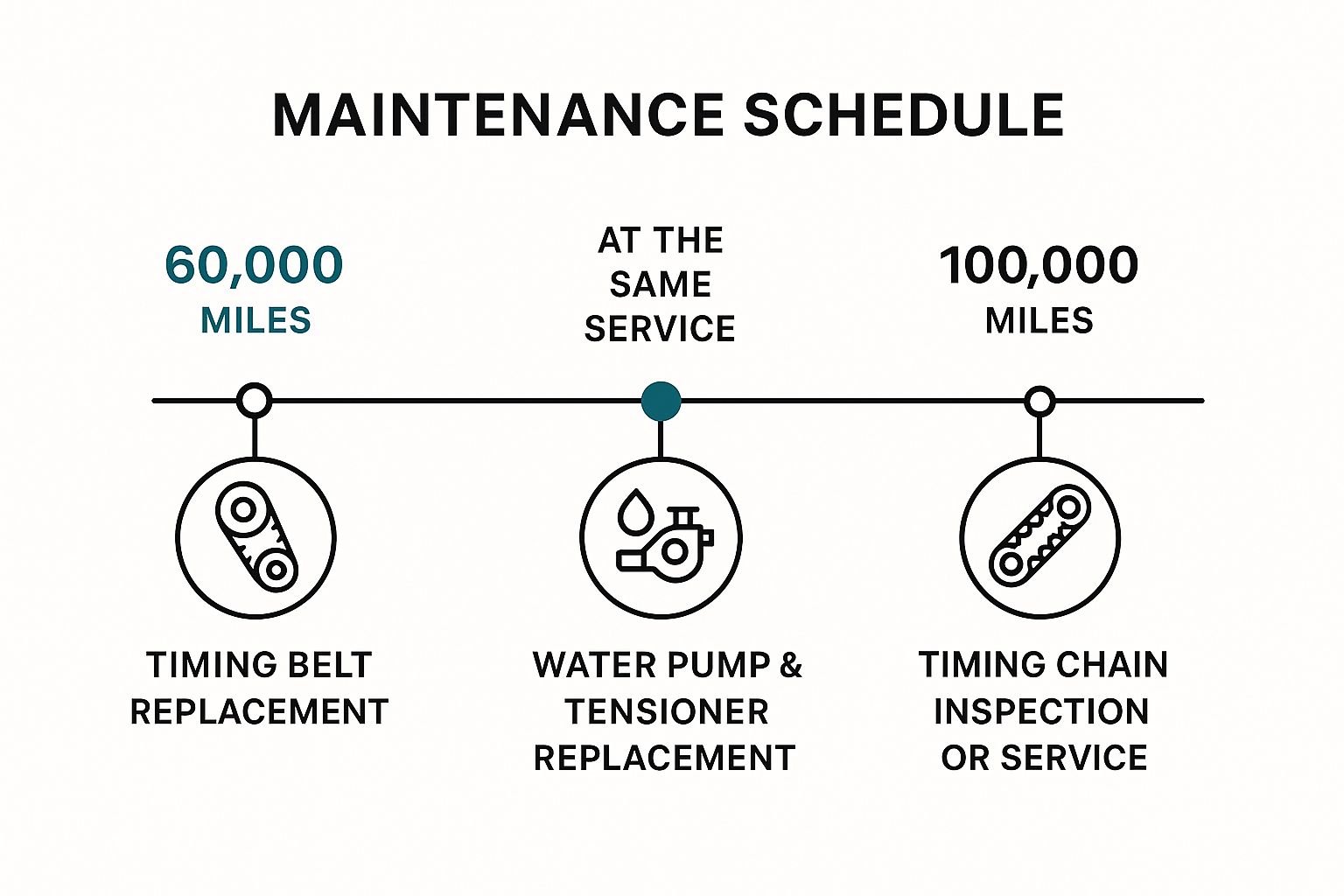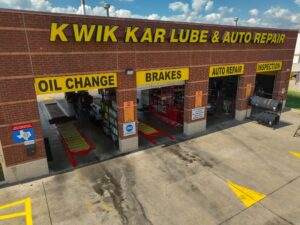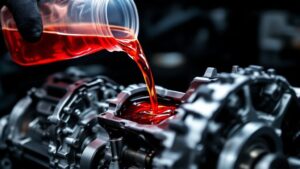Keeping Your Car in Top Shape: A Mileage-Based Guide
This car maintenance by mileage guide outlines essential tasks to keep your vehicle running smoothly and avoid expensive repairs. From oil changes every 3,000-7,500 miles to timing belt replacements at 60,000-100,000 miles, this list covers key maintenance intervals. Proper car maintenance by mileage, whether for a Toyota, BMW, or Ford F-150, maximizes vehicle life and performance. Kwik Kar Oil Change and Auto Care on White Settlement Road in Fort Worth is ready to assist with your car maintenance needs.
1. 3,000-7,500 Miles: Oil and Filter Change
Regular oil and filter changes are the cornerstone of car maintenance by mileage and are crucial for keeping your vehicle running smoothly and extending its lifespan. This essential service involves draining the old, contaminated engine oil and replacing it with fresh oil, along with a new oil filter. Clean oil is vital for lubricating the engine's moving parts, reducing friction and heat, and preventing premature wear. Ignoring this fundamental maintenance task can lead to decreased performance, costly repairs, and a significantly shortened engine life. This is particularly important for drivers in Fort Worth, where stop-and-go traffic and hot summers can put extra stress on a vehicle's engine.

The process works by removing contaminants and metal particles that accumulate in the engine oil over time. These particles, if left unchecked, act as abrasives, increasing friction and wear on engine components. The oil filter plays a critical role by trapping these contaminants before they can circulate back through the engine. Replacing the filter ensures that the new oil stays clean and can effectively lubricate the engine. The frequency of oil changes depends on several factors, including your vehicle's age, the type of oil used (conventional or synthetic), and your driving conditions.
Examples of Successful Implementation:
- Manufacturer Recommendations: Toyota, for example, generally recommends 5,000-mile oil change intervals with synthetic oil for most of its models. This ensures their engines remain protected under normal driving conditions.
- Condition-Based Maintenance: Some vehicles, such as certain BMW models, utilize condition-based maintenance systems that monitor oil life and alert the driver when a change is needed. This can extend oil change intervals to 10,000+ miles in some cases, benefiting drivers seeking to maximize time between services.
Actionable Tips for Car Owners in Fort Worth:
- Consult Your Owner's Manual: Your owner's manual is the best resource for determining the manufacturer-recommended oil change interval for your specific vehicle.
- Synthetic Oil Extends Intervals: Using synthetic oil often allows for extended oil change intervals, typically between 7,500 and 10,000 miles. This can be a cost-effective option for budget-conscious drivers and fleet managers.
- Severe Driving Conditions Require Shorter Intervals: If you frequently drive in stop-and-go traffic, tow heavy loads, or operate your vehicle in extreme temperatures (common in Fort Worth), consider shorter oil change intervals of 3,000-5,000 miles. This provides extra protection for your engine under demanding conditions.
- Reset the Oil Life Monitor: If your vehicle has an oil life monitor, always reset it after each oil change.
- Maintain Service Records: Keep a record of your oil change service dates and mileage. This is helpful for tracking maintenance and can be valuable information when selling your vehicle.
Pros and Cons:
Pros:
- Improved Fuel Efficiency: Clean oil reduces friction, leading to better fuel economy.
- Extended Engine Life: Regular oil changes are crucial for maximizing the life of your engine.
- Relatively Inexpensive: Compared to major engine repairs, oil changes are a relatively inexpensive maintenance task.
- DIY Option: With basic tools and some mechanical aptitude, oil changes can be performed at home, further reducing costs.
Cons:
- Proper Disposal Required: Used oil is hazardous waste and requires proper disposal. Many auto parts stores and service centers offer used oil recycling programs.
- Potential for Mess: If done incorrectly, oil changes can be messy.
- Dealership Markups: Dealerships often charge premium prices for oil changes. Independent shops and quick lube centers like Jiffy Lube, Valvoline, and others often offer more competitive pricing.
This item deserves its place on the list because it is the most fundamental and frequent car maintenance task directly impacting engine health and longevity. By understanding the importance of regular oil and filter changes and following the provided tips, car owners in Fort Worth can ensure their vehicles run reliably, perform efficiently, and retain their value for years to come. Whether you are a budget-conscious driver, owner of a high-mileage vehicle, or a fleet manager, prioritizing this essential maintenance task is a wise investment.
2. 15,000-30,000 Miles: Air Filter Replacement
As part of your car maintenance by mileage, replacing your engine air filter is a crucial task that falls within the 15,000-30,000-mile range. This often-overlooked component plays a vital role in maintaining engine performance, fuel efficiency, and longevity. The air filter acts as your engine's first line of defense, preventing dust, pollen, insects, and other airborne contaminants from entering the combustion chambers. A clean air filter ensures the correct air-to-fuel ratio for optimal combustion, protecting internal engine components from premature wear and tear. This is particularly important for drivers in Fort Worth, where dusty conditions can significantly shorten the lifespan of an air filter.

These filters, typically made of pleated paper or synthetic material, are housed in a plastic casing under the hood. While the recommended replacement interval falls between 15,000 and 30,000 miles as part of your car maintenance by mileage schedule, this can vary depending on your driving environment. For example, Ford F-150 owners operating in dusty conditions around Fort Worth may need to change their filters as frequently as every 10,000 miles. Conversely, those primarily driving on paved highways might be able to stretch the interval. Honda, for instance, recommends an inspection every 15,000 miles and a replacement at 30,000. Regardless of make and model, regular checks are essential for both budget-conscious drivers and those focused on vehicle performance and longevity.
Benefits of a Clean Air Filter:
- Improved Engine Performance and Acceleration: A clean filter ensures proper airflow, leading to smoother engine operation and improved throttle response.
- Increased Fuel Economy: A clogged air filter restricts airflow, forcing the engine to work harder and consume more fuel. Replacing a severely clogged filter can improve fuel economy by up to 10%. This is a considerable saving for budget-minded drivers and fleet managers in Fort Worth.
- Protection of Engine Components: By preventing contaminants from entering the engine, the air filter safeguards critical components such as pistons, cylinders, and valves, extending the life of your vehicle, especially crucial for owners of high-mileage or aging vehicles.
Pros and Cons:
Pros: Improves engine performance and acceleration, increases fuel economy, inexpensive part (typically $10-$20), easy DIY replacement for most vehicles.
Cons: Shorter replacement intervals needed in dusty environments like Fort Worth, some modern designs can make access more difficult, premium filters (like K&N, FRAM, Wix, and Bosch) cost more but may offer only minimal additional benefits.
Tips for Air Filter Maintenance:
- Visual Inspection: Hold the filter up to a light source. If light doesn't pass through easily, it's time for a replacement.
- Temporary Cleaning: Gently tapping the filter on a hard surface can dislodge some debris, offering a temporary solution until a replacement can be installed.
- Reusable Filters: Consider washable/reusable filters for long-term cost savings, a benefit appreciated by both individual car owners and fleet managers.
- Secure Housing: Always ensure the filter housing is properly secured after replacement.
- Check Both Filters: Remember to check and replace both the engine air filter and the cabin air filter during your maintenance routine. This will maximize both engine performance and the quality of the air inside your vehicle.
Replacing your engine air filter is a simple yet effective way to ensure your vehicle runs smoothly, efficiently, and reliably. Its affordability and ease of replacement make it an essential part of any car maintenance by mileage schedule, especially for Fort Worth drivers looking to maximize their vehicle's lifespan and performance while minimizing costs.
3. 30,000-60,000 Miles: Transmission Fluid Service
Transmission fluid service is a crucial aspect of car maintenance by mileage, especially as your vehicle accumulates between 30,000 and 60,000 miles. This service deserves its place on this list because it directly impacts the longevity and performance of your transmission, preventing a potentially catastrophic and expensive failure down the road. Maintaining your transmission is a critical part of any car maintenance schedule, and understanding its role in your overall mileage-based maintenance plan is essential.
This service involves removing old, degraded transmission fluid and replacing it with fresh fluid. Transmission fluid performs several vital functions: it lubricates the intricate moving parts within the transmission, provides the hydraulic pressure needed for smooth shifting, and helps cool the transmission components. As your car racks up miles, the fluid breaks down, losing its effectiveness and potentially leading to damage.
How it Works:
There are two primary methods of transmission fluid service:
- Traditional Service: This method involves draining the fluid from the transmission pan, replacing the filter, cleaning the pan, and refilling with new fluid. While effective, this method doesn't replace all of the old fluid, as some remains within the torque converter and other passages.
- Flush Service: A flush service utilizes a specialized machine to exchange nearly all of the old fluid with new fluid. This is a more comprehensive service but may not be suitable for all transmission types.
Examples of Successful Implementation:
The recommended transmission fluid service interval varies significantly depending on the manufacturer, transmission type, and driving conditions. For example:
- A Toyota RAV4 with a conventional automatic transmission typically requires service every 60,000 miles.
- A Honda Civic with a CVT (Continuously Variable Transmission) may need service as early as 30,000 miles under severe driving conditions.
- A Ford F-150 with a 10-speed automatic transmission has a recommended interval of 150,000 miles, but many experts suggest servicing it earlier for optimal performance and longevity.
Pros:
- Extends transmission life significantly
- Improves shift quality and responsiveness
- Prevents overheating of transmission components
- Much cheaper than transmission replacement or repair
Cons:
- More expensive service ($150-$400 depending on type)
- Some manufacturers claim "lifetime" fluid (though it still benefits from service)
- Using the improper fluid type can cause severe damage
- Some designs require specialized equipment
Actionable Tips for Fort Worth Drivers:
- Always use the manufacturer-specified fluid type. This is crucial to avoid damage.
- Consider service earlier than recommended if you tow, drive in mountainous terrain, or frequently encounter heavy traffic. These conditions put extra stress on the transmission.
- Check your transmission fluid color and smell. Brown or burnt fluid with a burnt odor indicates a need for service.
- Keep your transmission cool by avoiding excessive lugging or aggressive driving.
- Some newer vehicles lack a dipstick for checking fluid levels. Professional service is recommended in these cases.
- For convenient and reliable service in Fort Worth, consider contacting a trusted local provider.
Learn more about 30,000-60,000 Miles: Transmission Fluid Service
By adhering to the recommended car maintenance by mileage schedule, including timely transmission fluid service, you can protect your investment, ensure smooth and reliable performance, and avoid costly repairs in the future. Whether you drive a high-mileage vehicle, manage a fleet, or simply prioritize safety and performance, understanding your transmission's needs is a key component of responsible car ownership.
4. 30,000-60,000 Miles: Brake System Service
Between 30,000 and 60,000 miles, your vehicle's braking system requires attention as part of your car maintenance by mileage schedule. This critical system, responsible for your safety on the road, undergoes significant wear and tear during this mileage range. Brake pads, rotors, and fluid degrade with use, impacting stopping power and overall performance. Addressing these components proactively ensures optimal braking performance and prevents potentially dangerous situations. This service involves a thorough inspection of the entire system, including pads, rotors, calipers, lines, and the master cylinder.

Brake pads, the friction material that clamps down on the rotors to stop your car, are typically replaced within the 30,000-70,000 mile range. Rotors, the metal discs that the brake pads grip, can also warp or wear down and may require resurfacing or replacement. Brake fluid, the hydraulic fluid that transfers force from the brake pedal to the brakes, is hygroscopic, meaning it absorbs moisture over time. This can reduce its effectiveness, so it's essential to have it flushed every 2-3 years or 30,000-45,000 miles. Finally, lubricating caliper slide pins and other hardware ensures smooth and consistent brake operation.
This service deserves its place on the list due to its critical impact on safety. Neglecting brake maintenance can lead to reduced stopping power, increased stopping distances, and potential brake failure, all of which jeopardize your safety and the safety of others. Addressing brake issues early also prevents more expensive repairs down the line.
Features and Benefits:
- Inspection of key components: Provides a comprehensive overview of the brake system's health.
- Brake pad replacement: Restores optimal stopping power and pedal feel.
- Rotor resurfacing/replacement: Eliminates vibrations and ensures smooth braking.
- Brake fluid flush: Maintains hydraulic system integrity and prevents corrosion.
- Lubrication: Ensures smooth and consistent brake operation.
Pros:
- Essential safety maintenance: Prevents accidents and ensures reliable stopping power.
- Cost-effective in the long run: Prevents more costly repairs down the line.
- Maintains consistent pedal feel and stopping distances: Improves driving experience and safety.
- Basic brake pad replacement can be DIY-friendly: Potentially saves on labor costs.
Cons:
- Brake parts quality varies significantly among brands: Choose reputable brands for reliable performance.
- Complete service can be expensive ($300-$800 per axle for premium parts): Budget accordingly.
- Incorrect installation can cause noise or uneven wear: Professional installation is recommended.
- Specialized tools required for certain operations: May require a trip to a mechanic.
Examples: A Toyota Camry typically requires brake pad replacement around 50,000 miles, while BMWs utilize brake pad sensors to alert drivers when replacement is needed. Interestingly, Tesla vehicles, with their regenerative braking systems, can sometimes extend brake pad life beyond 70,000 miles.
Tips for Car Owners:
- Listen for squealing or grinding noises, which often indicate worn brake pads.
- Check your brake fluid level and color regularly. Dark fluid needs replacement.
- Replace brake pads when they reach approximately 3-4mm thickness.
- Always replace pads in axle pairs (both front or both rear).
- Consider upgraded brake pads for performance driving or towing.
Popular brake component manufacturers include Brembo, Akebono, EBC Brakes, Wagner Brake, and Bosch. Learn more about 30,000-60,000 Miles: Brake System Service for detailed information. Following this car maintenance by mileage recommendation will significantly contribute to the longevity and safety of your vehicle.
5. 60,000-100,000 Miles: Timing Belt/Chain Service
Between 60,000 and 100,000 miles, your vehicle reaches a critical point in its lifespan where the timing belt or chain requires attention. This component is the unsung hero of your engine, synchronizing the rotation of the crankshaft and camshaft(s) to ensure precise valve timing. This synchronization is what allows fuel and air to enter the cylinders and exhaust gases to exit efficiently. In "interference engines," a failure of this system can lead to catastrophic damage as the pistons and valves can collide. Proper car maintenance by mileage dictates addressing this vital service to extend your engine's life and prevent costly repairs.

The infographic visualizes the typical lifespan of a timing belt and highlights the importance of preventative maintenance around the 60,000-100,000 mile mark to avoid potential engine damage. As the timeline demonstrates, regular check-ups and timely replacement are crucial for optimal engine performance and longevity.
Timing belts are typically made of rubber and are subject to wear and tear. They require replacement within the 60,000-100,000 mile range. Timing chains, constructed from metal, are more durable and may last the lifetime of the vehicle, but they are not immune to stretching or other issues. Regular inspection, especially around 120,000 miles, is recommended for timing chains as well. This service often includes replacing the water pump, tensioners, and idler pulleys, as they are usually accessed during the same procedure. This bundled approach saves you money on labor costs in the long run. Because of the complexity of this system, timing belt/chain service is a major undertaking involving significant disassembly of engine components.
Examples of Recommended Service Intervals:
- Honda Accord V6: Timing belt replacement at 105,000 miles.
- Toyota Camry (with timing chain): Inspection recommended at 120,000 miles.
- Subaru Engines: Timing belt replacement is critical at specified intervals (consult your owner's manual).
Pros:
- Prevents Catastrophic Engine Damage: Avoiding a broken timing belt or chain can save you thousands of dollars in engine repairs or even replacement.
- Combined Service Efficiency: Replacing the water pump and other components concurrently minimizes labor costs and downtime.
- Long-Term Peace of Mind: Knowing this critical service is complete provides worry-free driving for years to come.
- Inspection Opportunity: The service allows mechanics to inspect other normally hidden components for potential issues.
Cons:
- Expensive Service: Costs can range from $500 to $1,500 or more, depending on the vehicle.
- Requires Technical Expertise: This is not a DIY job and requires a qualified mechanic.
- Time-Consuming: The service can take 4-8 hours, sometimes longer.
- Inadequate Service History: If the previous owner neglected this service, you may need premature replacement.
Tips for Fort Worth Drivers:
- Consult Your Owner's Manual: Determine if your engine has a belt or chain and the recommended service interval.
- Replace Related Components: Always replace tensioners and idler pulleys along with the timing belt.
- Consider Water Pump Replacement: Bundle this service to save on labor.
- Maintain Service Records: Documentation increases your vehicle's resale value.
- Listen for Warning Signs: Unusual noises from the engine could indicate a timing belt/chain issue.
This video provides a visual demonstration of the timing belt replacement process, helping you understand the complexity and importance of this service.
This 60,000-100,000-mile service deserves its place on this car maintenance by mileage list because it addresses a critical component that can cause catastrophic engine failure if neglected. For budget-conscious drivers in Fort Worth, proactive maintenance is far more economical than a major engine repair. Whether you own a high-mileage vehicle, manage a fleet, or simply prioritize safety and performance, attending to the timing belt/chain ensures your engine runs smoothly and reliably for years to come. Popular brands like Gates, Continental, Dayco, and ACDelco manufacture high-quality timing belts and related components.
6. 30,000-90,000 Miles: Fuel System Maintenance
As part of your car maintenance by mileage, addressing your fuel system between 30,000 and 90,000 miles is crucial for maintaining optimal performance and fuel efficiency. This system is responsible for delivering clean, properly pressurized fuel to your engine. Over time, components like fuel injectors, pumps, and filters can become clogged with debris, varnish, and carbon deposits, or simply wear out from constant use. Ignoring these issues can lead to poor performance, reduced fuel economy, and ultimately, expensive component failures.
This maintenance interval focuses on keeping your fuel system clean and operating efficiently. It includes services like fuel filter replacement (typically every 30,000-60,000 miles depending on driving conditions and manufacturer recommendations), fuel injector cleaning (30,000-90,000 miles), and cleaning of the throttle body and intake valves. A fuel system pressure test can also diagnose potential problems within the system. It's worth noting that modern direct injection (GDI) engines are more prone to carbon buildup on the intake valves, requiring more frequent cleaning.
Why This Matters in Your Car Maintenance by Mileage Schedule
This deserves a place in the list because a healthy fuel system directly impacts your vehicle's performance, reliability, and your wallet. A clogged fuel filter can strain the fuel pump, leading to premature failure. Dirty injectors can disrupt the fuel spray pattern, causing poor combustion, reduced power, and decreased fuel economy.
Benefits of Fuel System Maintenance:
- Improved Fuel Economy and Performance: Clean injectors and a healthy fuel system ensure optimal combustion, leading to better gas mileage and a more responsive engine.
- Prevents Costly Injector Replacement: Regular cleaning can prevent the need for expensive injector replacements down the line.
- Reduces Emissions and Environmental Impact: Efficient combustion reduces harmful emissions.
- Can Resolve Drivability Issues: Fuel system maintenance can often resolve issues like hesitation, rough idle, and stalling.
Pros and Cons:
- Pros: The advantages are clear: improved fuel economy, better performance, and prevention of costly repairs. Regular maintenance also reduces your environmental impact.
- Cons: Some vehicles have the fuel filter integrated into the fuel pump assembly, making replacement more expensive. The effectiveness of aftermarket fuel system cleaning solutions can vary. Professional cleaning services, while highly effective, can be costly ($150-$300). Many newer vehicles lack serviceable external fuel filters, making professional cleaning even more important.
Examples and Tips for Effective Car Maintenance by Mileage:
- Toyota GDI engines, for example, often benefit from intake valve cleaning every 60,000 miles. Ford EcoBoost engines are also prone to carbon buildup without regular maintenance. German luxury vehicles often require premium fuel and benefit from regular injector service.
- Use top-tier gasoline with detergent additives to help keep your fuel system clean. Adding a fuel system cleaner every 10,000 miles can also serve as a preventative measure.
- Be aware of symptoms like rough idle, hesitation, and poor fuel economy, which can indicate fuel system problems.
- For direct injection engines, consider professional walnut blasting to remove stubborn carbon buildup.
- Replace your fuel filter before it restricts flow and damages the fuel pump.
Learn more about 30,000-90,000 Miles: Fuel System Maintenance
Popular brands offering fuel system cleaning products and services include BG Products, Techron (Chevron), Lucas Oil, Sea Foam, and Redline. By adhering to this crucial step in your car maintenance by mileage, you can ensure your vehicle runs smoothly, efficiently, and reliably for years to come.
7. 60,000-100,000 Miles: Coolant System Service
As part of your car maintenance by mileage, addressing your vehicle's cooling system between 60,000 and 100,000 miles is crucial for preventing costly engine damage. This service plays a vital role in your vehicle's longevity, especially for those in Fort Worth dealing with our intense summer heat. This mileage range is a general guideline, and the specific interval for your vehicle will depend on the manufacturer's recommendations and the type of coolant used.
What is a Coolant System Service and How Does it Work?
The cooling system is responsible for regulating your engine's temperature, preventing overheating by circulating coolant through the engine block and radiator. Over time, this coolant degrades, losing its anti-corrosion properties and becoming less effective at heat transfer. A coolant system service typically involves a complete flush to remove the old, contaminated coolant and replace it with fresh coolant of the correct type and concentration. This service also includes a thorough inspection of key components like hoses, the radiator, water pump, and thermostat for wear and tear.
Why This Service Deserves its Place in the List:
Neglecting your cooling system can lead to overheating, which can cause catastrophic engine damage requiring expensive repairs. This proactive maintenance step is relatively inexpensive compared to the potential cost of a blown head gasket or warped engine block. For budget-conscious drivers and fleet managers, this preventative measure can save significant money in the long run. Moreover, a well-maintained cooling system contributes to optimal performance and fuel efficiency, essential for both daily drivers and those managing a fleet of vehicles.
Features and Benefits:
- Complete Flush: Removes contaminants and old coolant that can hinder performance and cause corrosion.
- Correct Coolant Type and Concentration: Ensures optimal cooling performance and protects against freezing and boiling.
- Component Inspection: Identifies potential issues with hoses, radiator, water pump, and thermostat before they become major problems.
- Corrosion Protection: Protects vital aluminum components within the engine from rust and degradation.
- Maintains Cooling System Pressure: Prevents leaks and ensures efficient heat transfer.
Pros:
- Prevents overheating and costly engine damage.
- Maintains optimal cooling system pressure.
- Provides essential corrosion protection, especially important in older vehicles.
- Relatively inexpensive preventative maintenance.
Cons:
- Requires proper disposal of old coolant, which is toxic to animals and the environment.
- Different coolant types and colors can create confusion for car owners.
- A complete flush is best performed with specialized equipment, often found in professional shops.
- Air pockets can form in the system if not filled correctly, leading to further issues.
Examples of Successful Implementation:
- Toyota recommends coolant replacement at 100,000 miles and then every 50,000 miles thereafter as part of their recommended car maintenance by mileage schedule.
- Many European vehicles require phosphate-free coolants for optimal performance and longevity.
- Ford specifies extended-life coolants for some models, recommending service intervals of 150,000 miles. This highlights the importance of consulting your owner's manual for model-specific recommendations.
Actionable Tips for Fort Worth Drivers:
- Never mix coolant types or colors without a thorough system flush. Compatibility issues can lead to reduced performance and potential damage.
- Always use distilled water when mixing coolant concentrates. Tap water contains minerals that can contribute to corrosion.
- Regularly inspect the coolant color and clarity. Brown or rusty coolant is a sign of potential problems and warrants immediate attention.
- Consider a pressure test to identify leaks before they cause overheating.
- Ensure the system is properly bled of air after any service to prevent air pockets.
Popular Coolant Brands:
Prestone, Zerex, Peak, Valvoline, and OEM manufacturer-specific coolants. Choosing a reputable brand ensures quality and compatibility with your vehicle.
By adhering to the recommended car maintenance by mileage schedule for coolant system service and following these tips, Fort Worth drivers can keep their vehicles running cool and avoid expensive repairs, ensuring reliability and longevity on the road, especially during our hot summers.
7 Key Car Maintenance Tasks by Mileage
| Maintenance Task | Implementation Complexity 🔄 | Resource Requirements ⚡ | Expected Outcomes 📊 | Ideal Use Cases 💡 | Key Advantages ⭐ |
|---|---|---|---|---|---|
| Oil and Filter Change (3,000-7,500 miles) | Low – simple DIY with basic tools | Low – oil, filter, basic tools | Improved engine lubrication, efficiency, longevity | Routine maintenance, all vehicles | Extends engine life, inexpensive, improves fuel economy |
| Air Filter Replacement (15,000-30,000 miles) | Low – easy visual check and replacement | Very low – inexpensive filter | Better engine performance and fuel economy | Dusty environments, regular service intervals | Simple DIY, fuel economy boost, engine protection |
| Transmission Fluid Service (30,000-60,000 miles) | Medium – may require professional equipment | Medium to high – fluid, filter, possibly machine | Better shifting, longer transmission life | Vehicles with high mileage, heavy use/towing | Avoids costly repairs, improves shift quality |
| Brake System Service (30,000-60,000 miles) | Medium to high – inspection, pad replacement | Medium – pads, rotors, fluid, some tools | Safety, consistent stopping power | Safety-critical, regular inspection cycles | Prevents accidents, early issue detection |
| Timing Belt/Chain Service (60,000-100,000 miles) | High – major disassembly, technical skill | High – belt/chain, tensioners, water pump | Prevents catastrophic engine damage | Critical on interference engines | Protects engine from severe damage, combined labor savings |
| Fuel System Maintenance (30,000-90,000 miles) | Medium – filter replacement, cleaning, testing | Medium – filters, cleaning agents, some tools | Improved fuel economy, reduced emissions | Engines prone to carbon buildup, direct injection | Maintains engine performance, prevents injector damage |
| Coolant System Service (60,000-100,000 miles) | Medium – flushing, refilling, system inspection | Medium – coolant, tools for flush and pressure test | Prevents overheating, corrosion protection | Engines showing overheating signs or old coolant | Protects engine parts, inexpensive preventative measure |
Your Path to a Well-Maintained Car
Sticking to a car maintenance by mileage schedule is the most effective way to keep your vehicle running smoothly and avoid costly repairs down the road. From regular oil changes and air filter replacements to more involved services like transmission fluid and brake system maintenance, each step plays a crucial role in your car's longevity and performance. Remember the key milestones: 3,000-7,500 miles for oil, 15,000-30,000 for air filters, and so on, increasing the complexity of maintenance as your mileage climbs. Mastering these car maintenance by mileage intervals isn't just about ticking boxes; it's about protecting your investment, ensuring your safety, and enjoying a reliable ride for years to come. And just like a well-maintained car, a well-organized home brings peace of mind. Thinking about ways to create more space in your garage for tools and supplies? Consider exploring smart organization solutions for maximizing your storage potential.
By proactively addressing your car's needs based on mileage, you're not just preventing breakdowns; you're optimizing fuel efficiency, preserving resale value, and minimizing the stress of unexpected car trouble. Whether you're a budget-conscious driver, a fleet manager, or simply someone who values a reliable vehicle, understanding car maintenance by mileage is empowering. For expert assistance tailored to your car's specific needs, visit Kwik Kar Oil Change and Auto Care. Their team of certified technicians in Fort Worth can handle everything from routine oil changes to complex repairs, ensuring your vehicle receives the proper maintenance based on its mileage.



